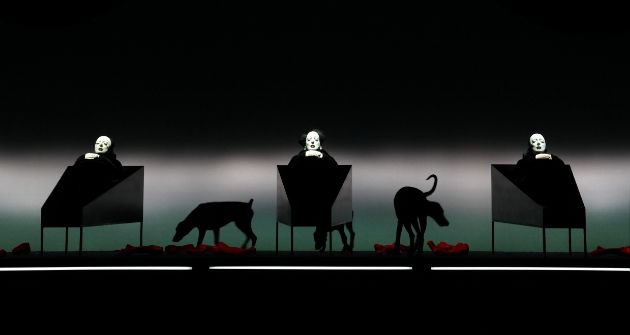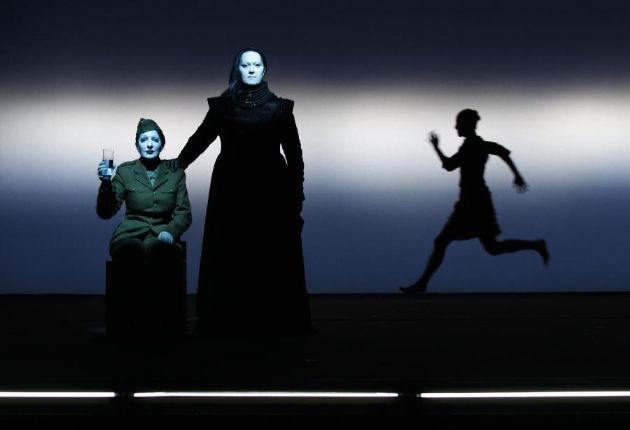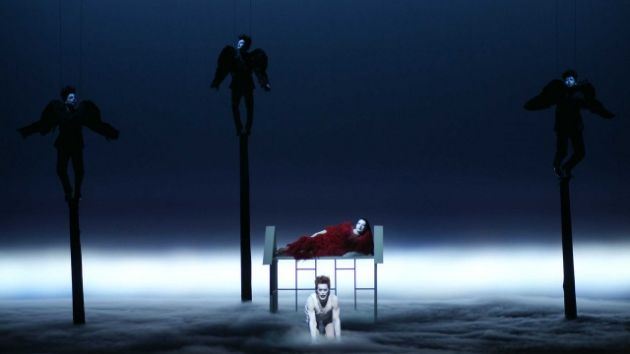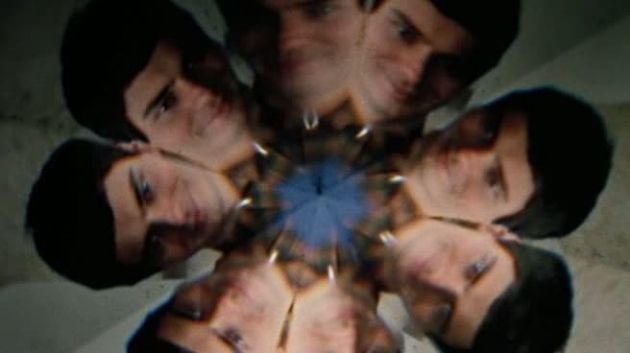


What a visual feat! Robert Wilson's Life and Death of Marina Abramovic was an experience that I will not soon forget. Ever since I realized that I missed seeing Black Rider, a musical that was Wilson's collaboration with Tom Waits and his Three Penny Opera, I was determined to see this. The avant-garde theater director's staging of a biography of the famed performance artist Abramovic is a close collaboration of Wilson, Abramovic, Willem Defoe and singer Antony from Antony and the Johnsons.
Dafoe serves as an devilish MC, gyrating through the 67 year old artist's bio, illustrating her harsh childhood in a militarily decorated, strict communist household in former Yugoslavia. Mixing amazing Balkan music with exceptionally powerful and beautiful Antony's singing voice and striking lighting schemes, watching Life and Death is unlike anything I've seen before. Abramovic here is a subject and a cast of an ensemble but not a performance artist. As a whole, it is an Wilson's piece through and through, artistically speaking. The two hours and forty minutes with intermission in beautiful The Park Avenue Armory on a snowy night Manhattan, I definitely wanted it to go on a lot longer. Too bad that the beautiful snow fall earlier turned into a heavy rain as we got out of the theater and made a real mess on the street. We wanted to frolic in the snow taking the experience in. Instead, Nicole and I opted for the cigar bar nearby and puffed our night away.
